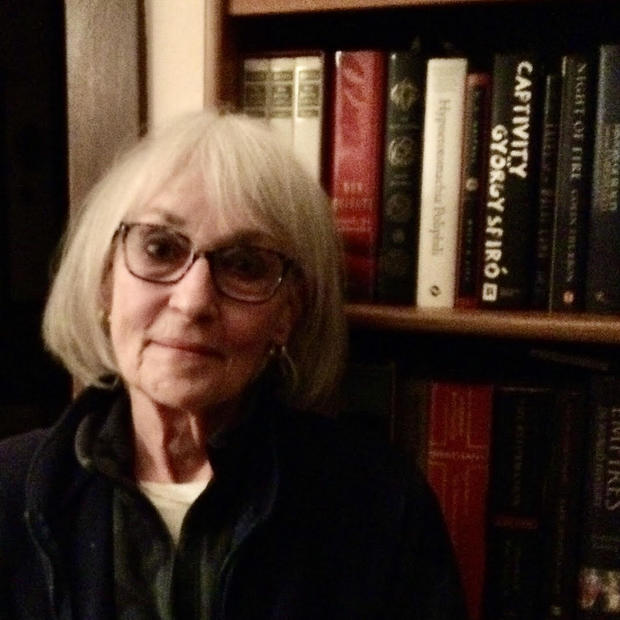One day at our favorite cafe Alfred told me about the mess of papers piling up in his apartment. "I hoard," he helpfully explained. So I gave him a day of assistance in weeding out his collection. That was last year. By last month Alfred's place had returned to its primeval condition.
We’d never gotten to the piles of paper in the loo, so the bathtub is still full of canceled checks saved since 1970, and yellowed bank statements are still heaped on the board that covers the tub like a coffin lid.
But now the dining table, so clear and clean a year ago, is a foot deep again in mental health brochures and junk mail. Shelves on the wall curve like big smiles under more "Free Stuff" picked up on urban street corners. Internet printouts cascade from open filing-cabinet drawers and drape the desk. Many of these printouts consist, as before, of titles like "How to Stop Hoarding."
I was at Alfred's place not long ago because he broke his shoulder in a fall from his bicycle and wanted me to help him write the letter he's owed his cousin since October. Besides bicycling, this near-octogenarian also loves skating and swimming, so, complaints being his specialty, I anticipated lots of grumbling about his altered state. But he surprised me.
"It's an interesting challenge," he mused, "learning how to do things with one hand. Like dressing myself." He held up the tool he invented to zip up his trousers and jackets: hooks stuck into a block of wood that fits his palm. He's also figured out some cool-hand moves for putting on the C-PAP mask he wears for sleep apnea.
And once the letter to his cousin was written he'd be ready, after marinating five days in the sweat worked up on his fatal bicycle ride, to experiment with bathing. Of course his bathtub's been dry ever since it became a storage unit for his financial history, so for years he’s showered at a nearby community center.
Alfred's wish to write his cousin seemed a good sign despite his months of procrastination. For much of his life he's been reclusive, his cruel social phobias often rendering him mute. But recently he's been trying to reach out by attending discussion groups at the public library and meetings at his Green Lake apartment building. He meets with me for an hour each week, too — a purely social occasion, with no particular agenda except comradeship.
It's exactly the kind of open-ended occasion in which Alfred shuts down completely or, like the Ancient Mariner, feels compelled to grasp his hearer's metaphorical wrist and pour out his traumatic story. Unless his attention gets diverted to another topic he'll describe in a low drone the bleak isolation of his infancy, the repeated attacks of bullies at school, his withdrawal into fantasy worlds — his lifelong helpless habit of solitude. Even visits to an aging brother have been pretexts for unfurling, again, all his sad childhood flags. I wondered whether he'd want to wave them in a letter to his cousin. Alfred might actually view doing so as a sign of progress. For decades he rarely said anything at all.
Yesterday, as he began our epistolary task by dictating two or three early episodes of grief and grievance (stories I know well) he intently watched me type his words on my laptop. Then his narrative turned in a surprising direction. The bitter tension so familiar to me behind his monologues diminished, and he relaxed in his chair as though a safe space for reverie had opened up to contain the life he was reliving.
He told about going to college and learning how to smoke a pipe. He told about finding his first job and being fired the first time, about borrowing from his parents to buy a small commercial building, about venturing on a cheap trip to Argentina, about discovering the stock market just when AT&T was dissolving into Baby Bells. His wrinkles softened, and his face filled with mild light.
Did imagining his cousin as his listener let him steer his storytelling into fresh territory? It's possible. But in the two years I've known Alfred he’s never been one to consider his audience. He’s been, when willing to enter spaces that might be invaded by other people, the same scared, obsessed, compulsive guy whether the other people are close relatives, complete strangers, or absent.
Maybe it was knowing his story was being carefully typed out, word by word, that made the difference. Maybe he stopped worrying about whether he was being heard because he was being written.

